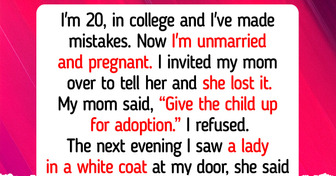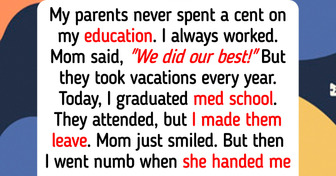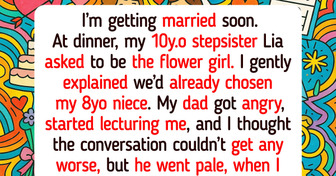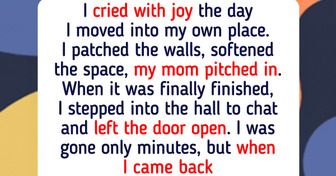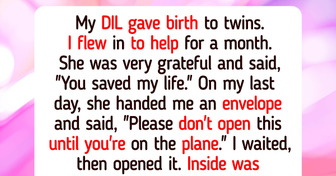18 Seniors Whose Sharp Wit Proves Humor Only Gets Better With Age


Just as there are no perfect parents, there’s no perfect parenting. Children don’t come with an instruction manual, so it’s impossible to predict whether the way they are raised can help them develop fully in childhood and adolescence. That’s why there are many myths and beliefs related to their education that, on many occasions, don’t have a scientific basis to support their effectiveness in the short and long term.
Bright Side did some research on the various parenting tips that many people often think are true but are actually not effective at all.
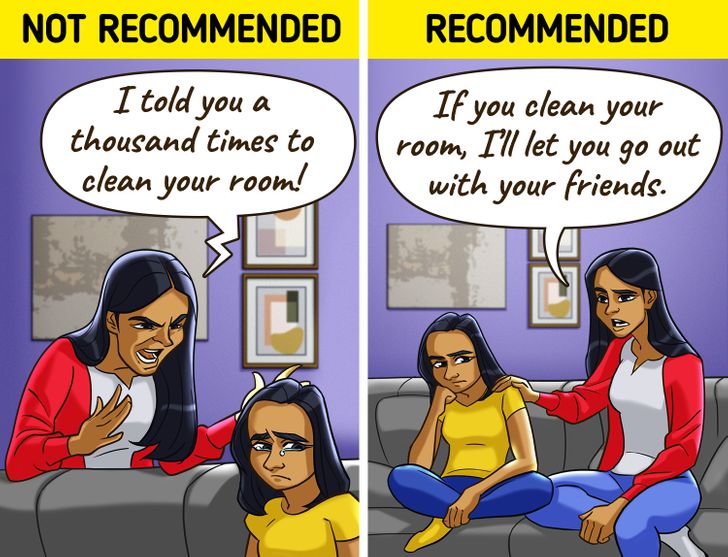
Aggressive parenting methods are still ingrained in many communities. However, you should know it’s actually not an effective way of educating kids. Not only that, but it can cause trauma in children. This type of discipline only leads to increasing the gap between children and adults and makes the latter act as judges to set the rules without the possibility of opening space for dialogue.
Physical punishment isn’t the only type of aggression. Verbal punishment, where parents tend to use strong words or raise their voices as a way of disciplining their children, isn’t effective either. Instead of helping them to improve their behavior, this only makes it worse and generates behavioral problems over time.
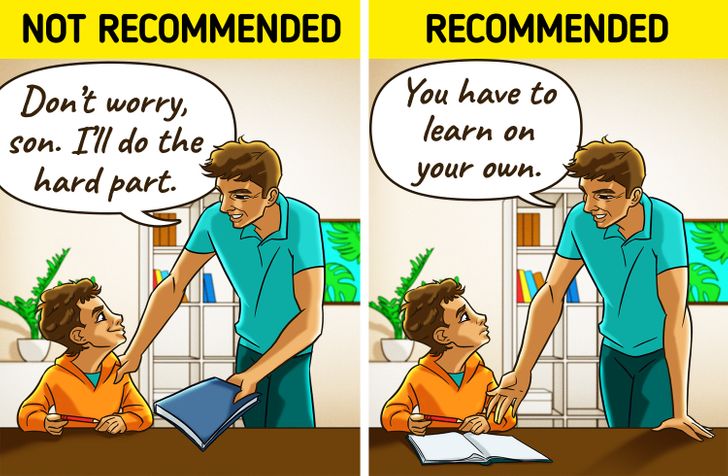
Although authoritarian approaches, such as physical and verbal punishment, don’t yield good results, it’s also not good to be too permissive with children to the point of not making them respect the rules. Parents should be perceived as “role models” for their children, so it’s important to bring them up in such a way that they learn to follow the rules, and instill values in them that help them live in society.
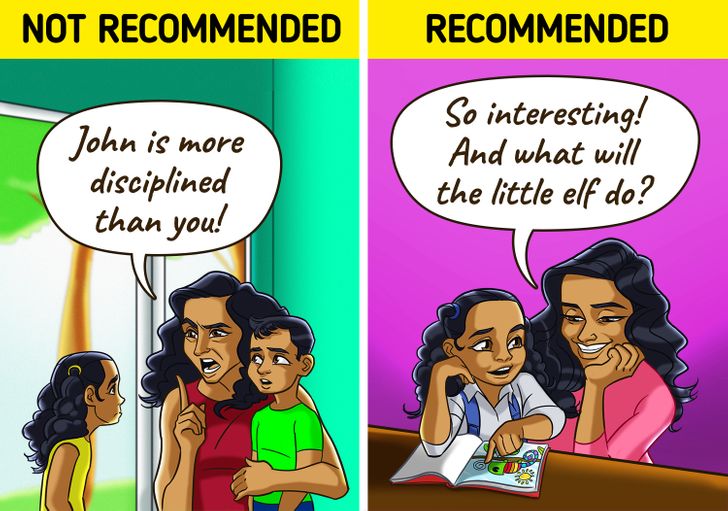
Many times, parents believe that a disciplined child with good grades is more likely to succeed in the future. And paying more attention to the child who demonstrates these qualities and pointing to them as an example to follow only encourages sibling rivalry and difference, leading to the development of behavioral problems and family conflicts down the road.
While it’s difficult to avoid comparisons, it’s recommended to assume that each child has their own differences, and that one does not always succeed by being the best student in school. In these cases, it’s best to appreciate each child’s strengths and not compare them directly.
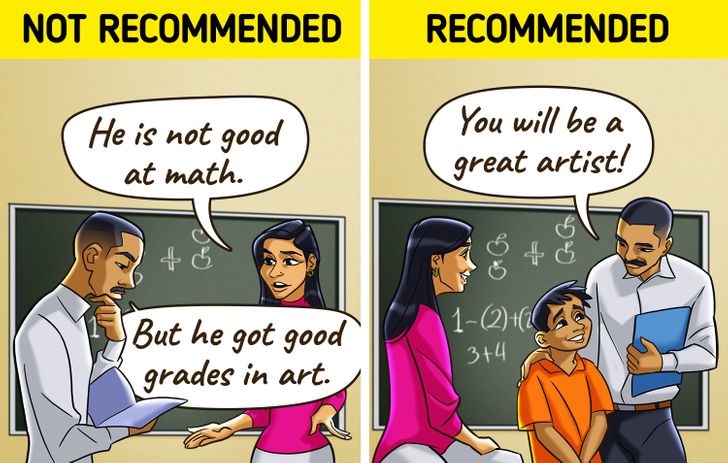
There are parents who, in order to encourage their children to be successful, enroll them in many extracurricular activities that allow them to polish their skills. But the obsession with having successful children who only reap achievements in everything they do only contributes to creating unhappy children who end up fulfilling their parents’ expectations without satisfying their own desires.
As for the school environment, students who are forced to perform well and who develop in educational environments where competition with others is privileged may suffer from sleep deprivation and self-esteem issues. In these cases, the ideal thing to do is focus on the kid’s effort rather than the end result.
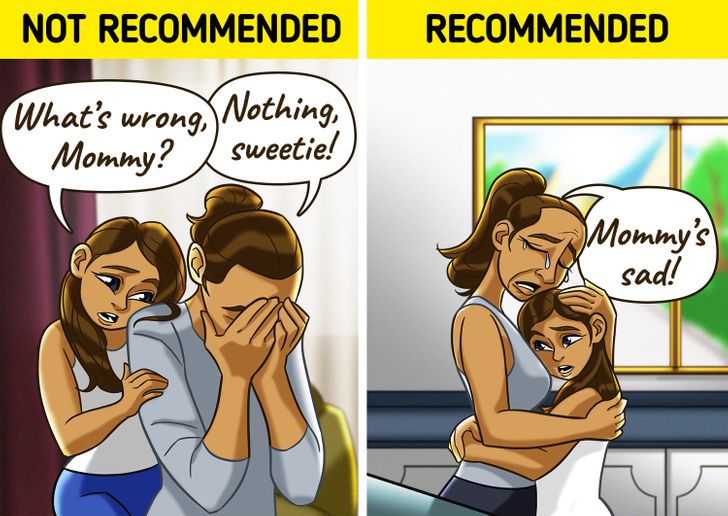
Parents often try to portray an image of perfection and avoid, at all costs, showing themselves as vulnerable people in front of kids. However, it’s important for children to know that adults also have moments of apathy or sadness. No feeling should be belittled, but rather, it should be channeled so that children don’t hide them when they go through a crisis at certain moments in their lives.
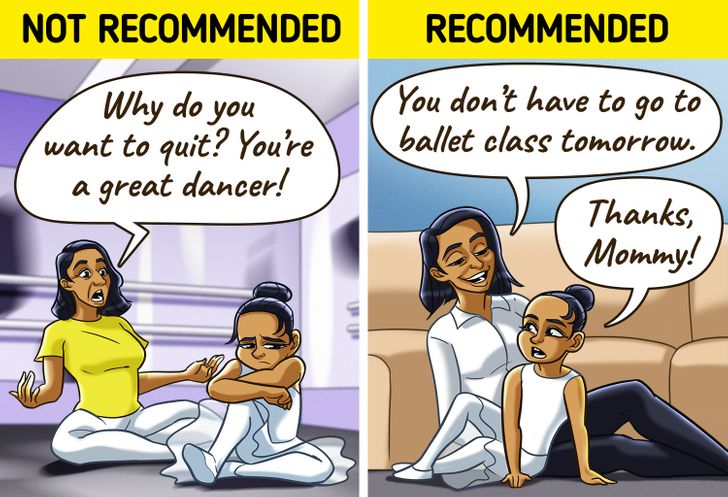
While extracurricular activities can help children develop leadership and socialization skills, homework overload can also contribute to poor academic performance. This is especially true for young people who are in their final years of school and have family responsibilities.
During childhood, many parents enroll their children in various courses or workshops outside of school that may eventually cause stress and anxiety. Children need time to play or relax after their studies. Therefore, if they refuse to attend an activity, it’s advisable to talk about it and discuss the possibility of dropping it or setting priorities.
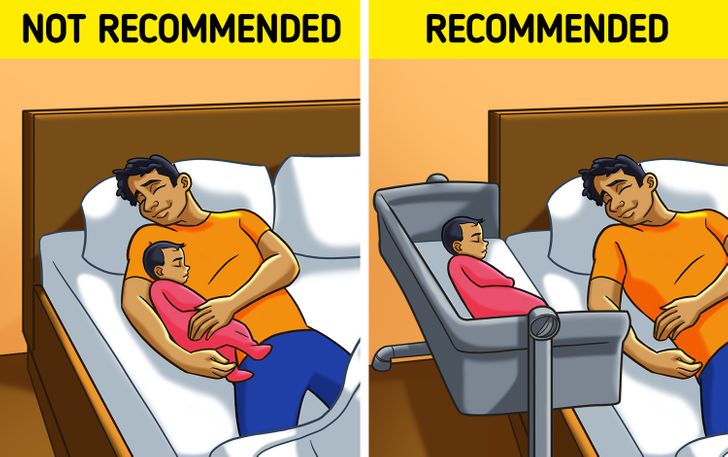
While this varies depending on your particular routine, there are some advantages and disadvantages that relate to the lifestyle or health of the parents. It’s believed that co-sleeping helps children feel safe and breastfeeding mothers get more sleep. However, if there are other factors, such as the baby’s sleeping position or the parents’ health, it may be advisable to try other alternatives, such as putting the child to sleep in a crib.
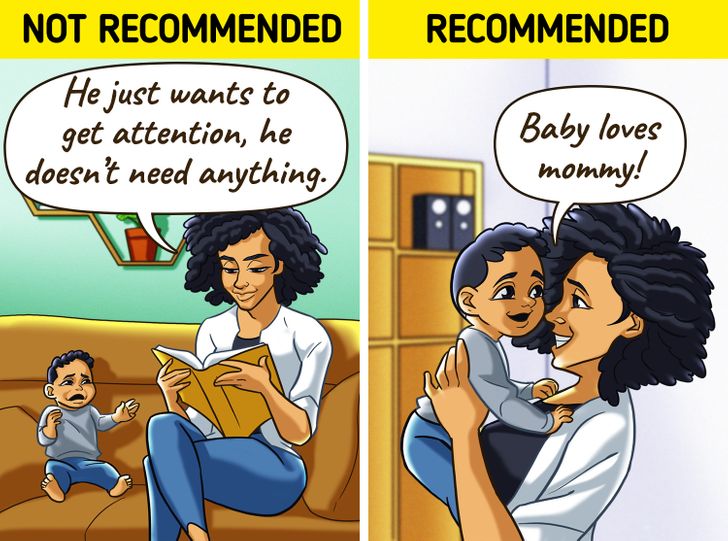
Biologically speaking, humans are completely vulnerable in their first months of life. That’s why babies have to be with their mothers at all times to feel safe and protected against any threats. Contact allows the baby to develop well and also helps them to identify their parents among others.
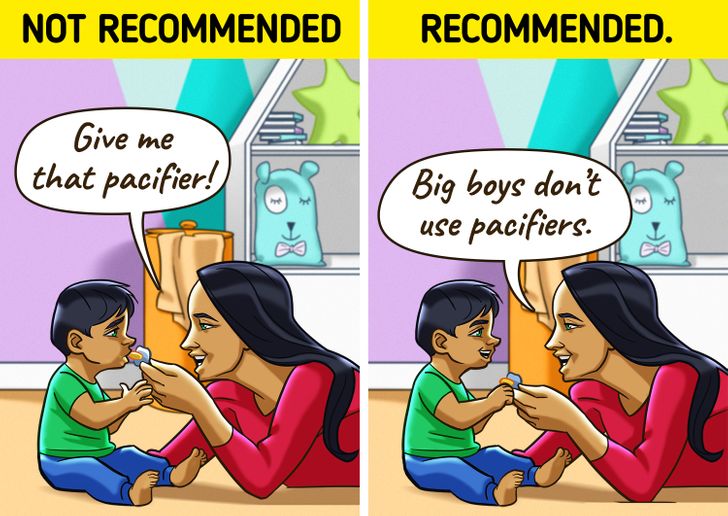
Prolonged use of the pacifier can cause tooth deformities and dependence, so doctors recommend babies stop using it between the ages of 2-4. The process of abandonment might be difficult for some babies, and that’s why it’s important to praise your kid whenever they don’t use their pacifier.
You can also try and comfort your baby by giving them a back rub or a cuddle if they are screaming and crying. If your baby is having a lot of trouble giving up the pacifier and nothing works, you should consult with your doctor or dentist.
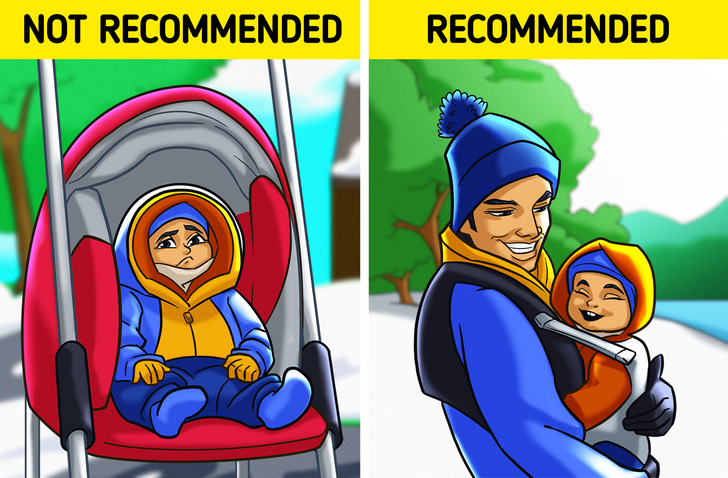
The problem with overdressing babies is that they may develop a fever because they are not able to regulate their body temperature. It also happens if they are kept in very hot environments. In these cases, it’s recommended that they only wear one more piece of clothing than adults, and if they have a fever, take off their coat to help them lower their temperature.
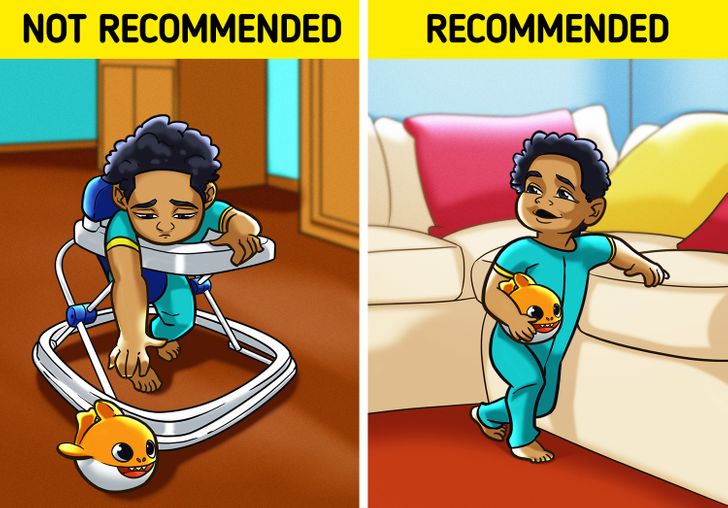
Many parents use walkers to prevent their baby from bumping into a wall or piece of furniture while walking around the house. But this toy prevents them from crawling and pulling themselves up to stand, actions that are both very important in their effort to learn how to walk.
Another problem with walkers is that they increase the risk of accidents that can hurt the child. And when they are taken away, it’s difficult for the child to stand up because there is no other support to help them walk safely. Ideally, the baby should develop naturally and at their own pace to learn to sit, crawl, and stand.
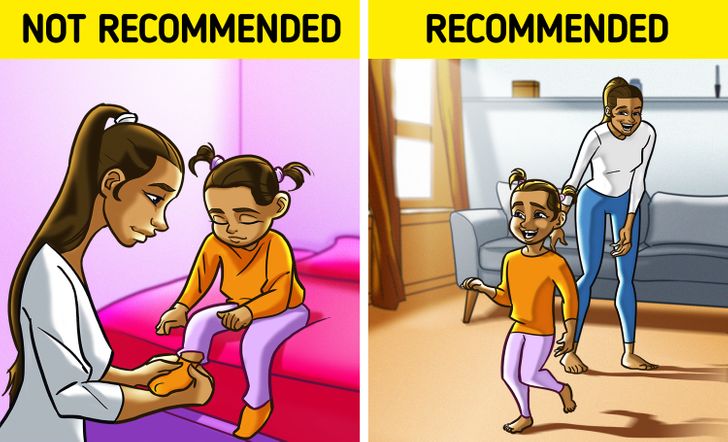
Viruses do not enter through the feet, as many people think, so it’s okay for children to go barefoot. Diseases such as colds are spread by contact with the saliva that is expelled when talking or sneezing. And it hasn’t been scientifically proven that cooling the feet or other parts of the body causes colds. Therefore, it’s advisable to maintain good hygiene habits to prevent contagion.
What kind of advice have you been given to raise your children? What methods have you tried so that your children develop properly?

